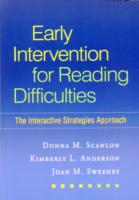- ホーム
- > 洋書
- > 英文書
- > Psychology
Full Description
An Introduction to the Psychology of Humor presents comprehensive research from ten psychological perspectives: cognitive, biological, personality, social, cross-cultural, developmental, health, positive, clinical, and applied. This accessible overview explores how humor contributes to cognitive functioning, social relationships, and overall well-being, while examining its role in coping mechanisms, creativity, and emotional regulation. The second edition includes expanded coverage of humor during the COVID-19 pandemic, humor in social media, artificial intelligence and humor, and recent theoretical developments.
The book features student-friendly elements including learning objectives, theoretical assumptions for each perspective, clear definitions of key terms, illustrative examples from humor studies, and detailed methodology and findings. Each chapter concludes with a recap of main points, suggested classroom activities, and a study guide with concept questions. With over 600 cited papers, this text connects humor research to fundamental concepts across all areas of psychology.
Written primarily for psychology undergraduates who typically receive limited exposure to humor research, this book fills an important gap in psychology education. The content is equally valuable for instructors seeking to incorporate humor research into various psychology courses, as the material connects to all major psychological paradigms. Students and teachers alike will appreciate the thought-provoking explanations, examples, and classroom activities that demonstrate humor's significance in human cognition, social dynamics, and mental health.
Contents
Introduction. Chapter 1. Psychology of Humor Theories. Chapter 2. Cognitive Psychology. Chapter 3. Biological Psychology. Chapter 4. Personality Psychology. Chapter 5. Social Psychology. Chapter 6. Cross-cultural Psychology. Chapter 7. Developmental Psychology. Chapter 8. Health Psychology. Chapter 9. Positive Psychology. Chapter 10. Clinical Psychology. Chapter 11. Applied Psychology.








